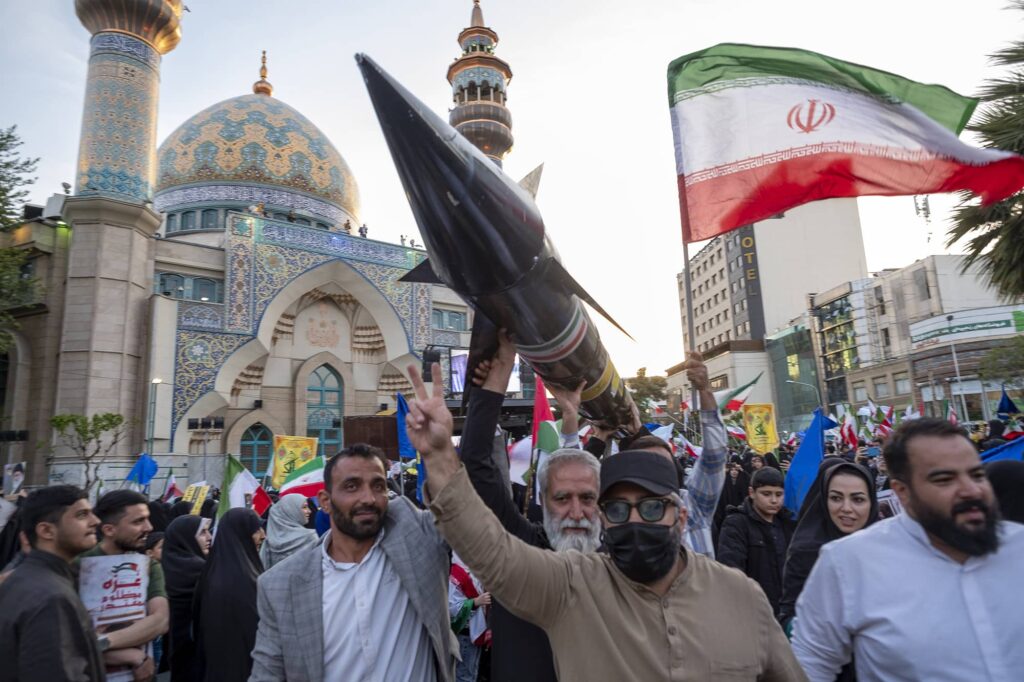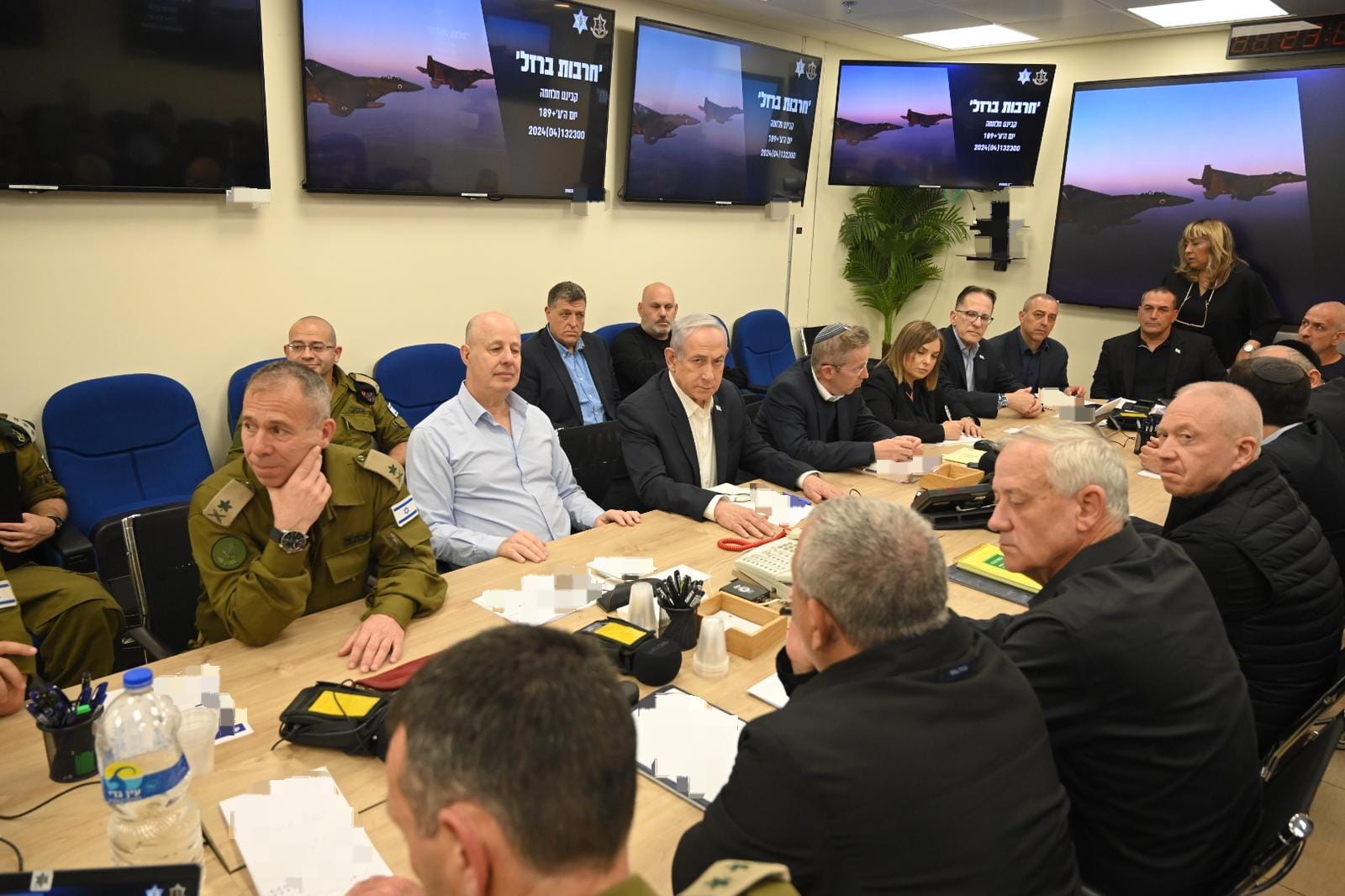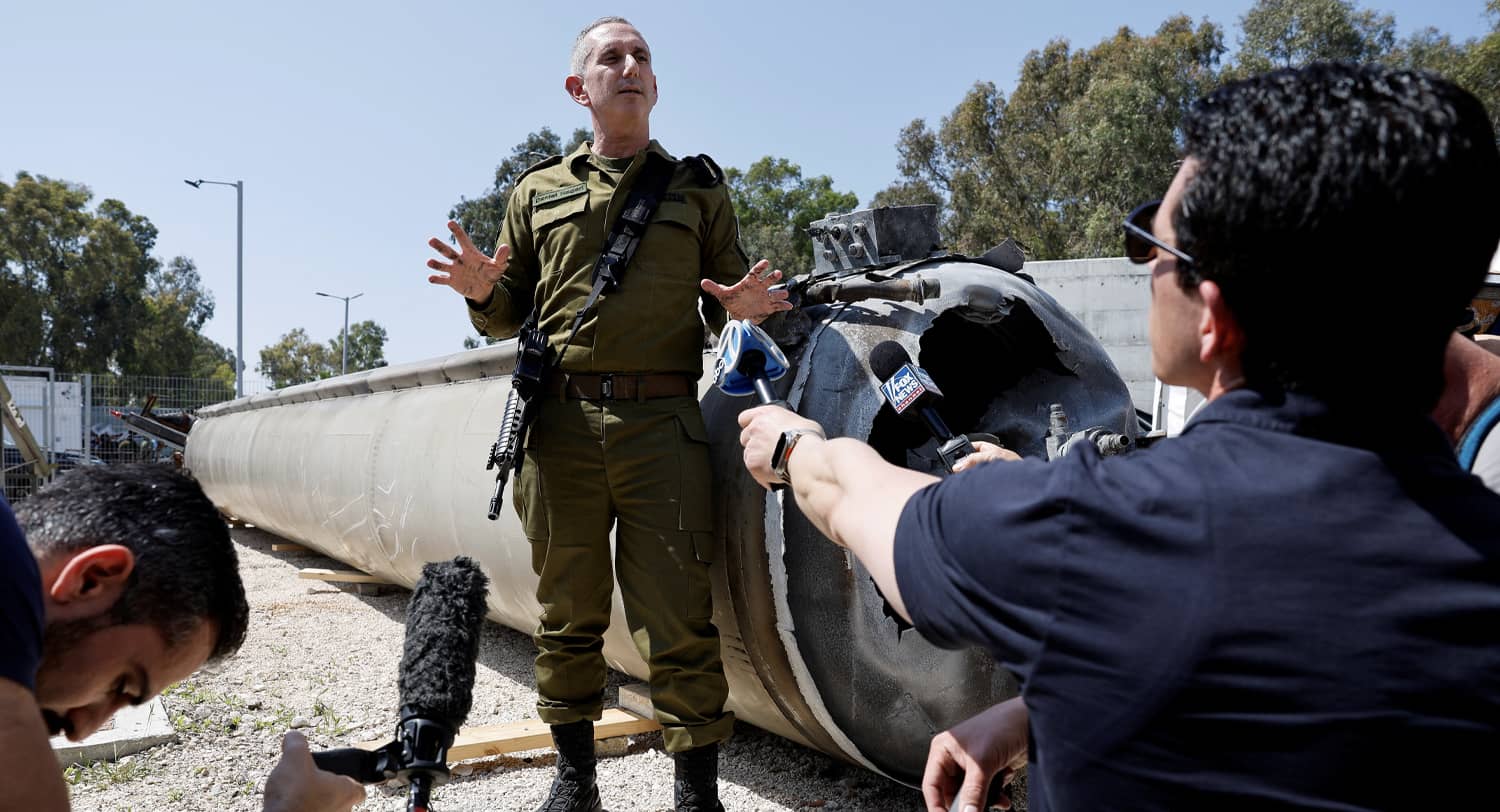In the face of the dramatic large-scale Iranian assault on Israel April 14, Israel has a fateful choice, usually presented as whether or not to conduct a retaliatory attack on Iran. But the real choice is how Israel, as a state with its existence at stake, can exploit the current military and diplomatic situation to lead a loose coalition of regional states and the US to victory over Iran and its proxies, who have been advancing without an effective counter through the region these last twenty years.
As a close observer of the Trump administration’s decision-making after the killing of Qasem Soleimani and subsequent Iranian missile attack, this writer can understand to some degree the magnitude of Israel’s decision. No one but the Israeli state can make this decision. It was the state that was attacked, and it is the state whose existence is in play in this campaign. But that right to decide also includes the responsibility to consider how options affect larger strategic goals, including the impact on one’s allies.
Israel’s stated strategic goal since October 7, beyond the immediate tactical mission in Gaza of dismantling Hamas and returning the hostages, is to restore deterrence and escalation dominance, not so much against Hamas which is to be destroyed as an offensive military force, but rather against the entire Iran-led “axis of resistance.” All decisions thus should be made so as to best advance that vital priority.
That means above all else reversing that axis’s twenty-year march through the region. Israel’s strategic quandary today is not so much Iran’s direct military threat (assuming it does not obtain nuclear weapons) but rather the expansion of heavily armed surrogates dedicated like Iran to Israel’s destruction, now on its borders in Lebanon, Syria and Gaza and further afield in Yemen and Iraq. Iran, during this twenty-year campaign, has not only built up these now formidable forces, but with their help gained some degree of control over Gaza and four Arab states, Syria, Yemen, Lebanon and Iraq. The bloody wars in those states leading to Iranian success came at a cost, by US and UN counts, of roughly a million people killed and fifteen million refugees or internally displaced, a human cost exponentially greater than the tragic civilian losses in Gaza.
Aside from Teheran’s well thought-out asymmetric strategy, its success owes to blunders on the part of Iran’s opponents, the US, Israel, and at times various Arab states and Turkey, theoretically a massively strong coalition. Those blunders included a major one of omission, the failure of the US to mobilize that coalition effectively against Iran, with the limited exception of 2018-2020, and numerous errors of commission. Those range from the US overthrow of Iran’s counterweight Saddam and its 2005 advocacy of Palestinian elections and Israel’s withdrawals from Lebanon and Gaza, to the fatal 2006 Lebanon ceasefire UN Resolution 1701 and multiple US and Arab states’ missteps in Syria and Yemen.

But now the Israeli tactical success, already achieved by escalation dominance with its ferocious Gaza ground offensive and brilliant air defense victory over Iran on April 14, opens the door to strategic success, eliminating Hamas as an army and state, pushing back Hizbullah, and reducing Iran’s offensive air threat, while cementing a loose regional alliance both militarily, building on April 14, and diplomatically, advancing the Abraham Accords.
This however requires strategic, political thinking by Jerusalem and Washington, a trait seemingly in short supply at times in both capitals since October 7. Specifically, Israel should consider carefully how retaliation against Iran fits into the larger strategic picture.
A pinprick strike will change nothing with Iran and infuriate a nervous region and the Biden administration. But even a massive retaliatory strike makes little sense. Short of destroying Iran completely, an unlikely result, such an action would likely provoke far more brutal Iranian and Hezbollah missile strikes, damaging much military and civilian infrastructure and inflicting possibly high casualties, including perhaps American and Arab state personnel, thereby smashing relations with Washington and the other April 14 allies. Subsequent Israeli and Iranian responses likely would throw the region and the US into a general war with unknown outcomes.
A better approach would be to “trade” Israeli acquiescence to Washington on retaliation for Washington acquiescence to a major Rafah operation. To be sure, Israel should modify its tactics on Rafah to align better with some of Washington’s military proposals, particularly protection of civilians, and Egyptian concerns. But the reality is that the crucial Israeli Rafah endgame is now on hold because Washington really doesn’t want any new serious offensive owing to American domestic political concerns. Such a trade would allow Israel to break through Washington’s endless demand for ceasefire now (and thus Hamas’ obvious interest in refusing one).
Taking down Hamas is not enough. Israel must take four other steps to secure strategic results. First, work with Washington, European and Arab states for a serious international presence in Gaza to establish governance and security and manage a huge humanitarian effort. This will involve the Palestinian Authority but does not require at this point Israel to change its position on a two-state process.
Next, Israel should shift forces to the Lebanese border and demand that Hizbullah withdraw beyond the Litani River, as stipulated in UN Resolution 1701, or else Israel will drive it north.
Israel should then, if the Houthis are still attacking Red Sea shipping, give Washington a stark choice. Either the US restores deterrence with the Houthis or Israel will. The flawed US campaign so far demonstrates that this requires striking the Houthis’ high value assets, from leadership to port facilities to core military capabilities. Only such decisive action will up the costs of their naval campaign sufficiently to compel them to either end it or else expose themselves to the risks of long-term survival.

Finally, with Iran, Israel should leave open the option of a targeted attack on Iranian assets engaged directly or indirectly against Israel, be they intelligence vessels in the Red Sea or radar stations endangering Israel air operations. In addition, Israel should make clear to Tehran that any new attack on it by Iran, or attacks by surrogates that kill civilians, will generate a massive Israeli counter-strike designed to take out top leadership, cripple national electrical generation and shut down nuclear sites. Here Israel should demand a commitment from the US that it would simultaneously take out the Fordow enrichment facility, and any other site buried under a mountain – likely beyond the reach of Israel’s current capabilities.
Israeli concerns that Iran would interpret as weakness any immediate Israeli retaliatory restraint are not easily dismissed, certainly not with appeals from the faint-hearted swarming Washington and European capitals to “cease fire, deescalate, negotiate” however inappropriate, whatever the situation.
But there is a larger truth. From Thucydides to Machiavelli and Clausewitz: success in war has been defined not by rote application of any maxim, but by changing the underlying international situation in a way that strengthens a state militarily, economically and, particularly, diplomatically, while weakening its enemy.
Israel has within its grasp this kind of success: Iran’s entire regional IRGC leadership taken out, Tehran’s follow-up assault capacity – and much of its deterrence threat against Israel – brilliantly deflected, while Israel goes on to take down one major Iranian ally and weaken others, while forging a regional alliance with the US and Arab states.
In 1991, Iraq fired scores of missiles into Israel, but Israel did not retaliate. Weeks later, the United States backed by Arab states who, had Israel acted otherwise, might have defected, destroyed much of the Iraqi army on the path to Saddam Hussein’s eventual demise.



